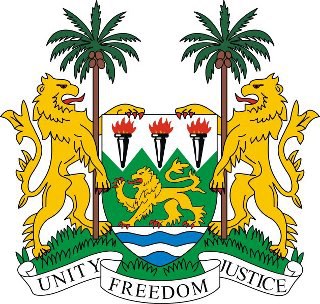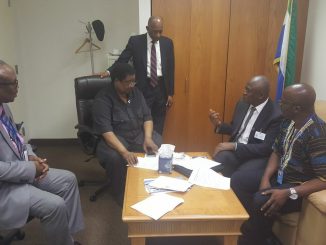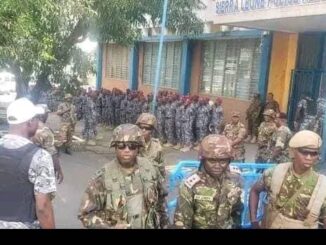
FREETOWN, SIERRA LEONE, May 4, 2015 – The Government of Sierra Leone in collaboration with the World Bank and UNICEF had established a Social Protection Policy in 2011 which has culminated into a Social Safety Net programme to support extremely poor households and vulnerable communities throughout the country.
The programme will be launched today by His Excellency President Ernest Bai Koroma, in Magburaka, the headquarter town of Tonkolili – one of the country’s poorest districts – is financed by a US$7 million grant from the World Bank’s International Development Association (IDA), a US$300,000 grant from UNICEF, and US$1 million from the Government of Sierra Leone. Overall, the programme seeks to identify and assist poor and vulnerable households across the country, including those affected by the Ebola outbreak.
“This new Social Safety Net program builds on the country’s Agenda for Prosperity whose core objective is to achieve middle income status by 2035 by reducing the number of Sierra Leoneans below the poverty line. It will strengthen coordination and implementation of social protection programs that improve nutrition and health services, and access to education, in order to break the inter-generational cycle of poverty”, said Saidu Conton Sesay, Chief of Staff in the Office of the President.
Progress in social and economic sectors has suffered a serious blow during the Ebola outbreak with many deaths, loss of livelihoods and income, delayed schooling, and a number of children orphaned by the disease. Therefore, this Social Safety Net programme is intended to mitigate these impacts and support people to lift themselves out of poverty and live productive and dignified lives.
Kaifala Marah, the Minister of Finance and Economic Development said, “This Social Safety Net program was developed in line with Sierra Leone’s development agenda, institutional and financial conditions and capabilities, and we hope that it will create a sustainable system to address the biting problems of poverty and inequity in the country.”
Basically, the program will provide regular cash transfers to 21,000 extremely poor households, benefiting 126,000 people, including children, Ebola survivors, and other vulnerable people. Cash transfers will enable families to buy food, send children to school, and protect assets such as livestock.
“The country has come a long way in moving from an uncoordinated approach toward building a coherent social safety net system capable of protecting the poorest and most vulnerable, including from shocks such as Ebola. Continued progress in this direction will become even more crucial in view of the devastating impact of the Ebola outbreak and as the country transitions back to the Agenda for Prosperity. The Bank remains committed to supporting the Government in these efforts”, said Francis Ato – Brown, World Bank Country Manager for Sierra Leone.
Though the initial phase of the programme covers only 14 percent of the approximately 147,000 extremely poor households in the country, it is a starting point for an accelerated pace to address the issues of poverty and inequity, and help poorer families cope with the Ebola aftermath. More than 2,700 beneficiaries have already started receiving the cash transfers.
“The progress made is great but the needs are greater! And as this programme is being implemented, we must keep in mind those children in the poorest households, undernourished and sick and more likely to die before they reach their fifth birthday,” saidRoeland Monasch, UNICEF Representative in Sierra Leone. “UNICEF will continue to work with the Government and other partners in defining long-term national financing strategies to protect and expand expenditures on effective social protection programmes.”
The programme will be implemented by the National Commission for Social Action (NaCSA) and will include monitoring mechanisms led by the Anti-Corruption Commission to ensure resources reach the intended beneficiaries.



